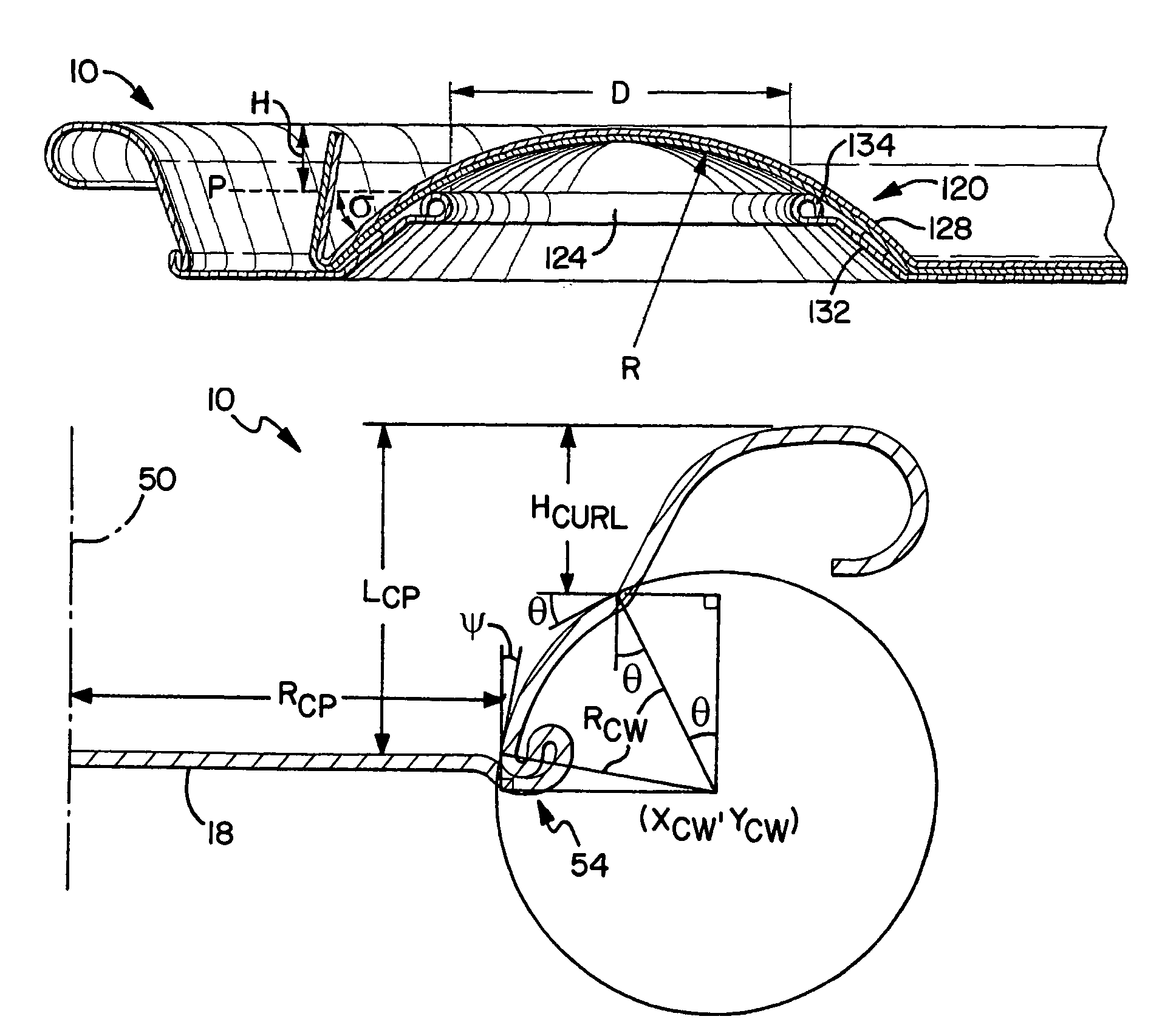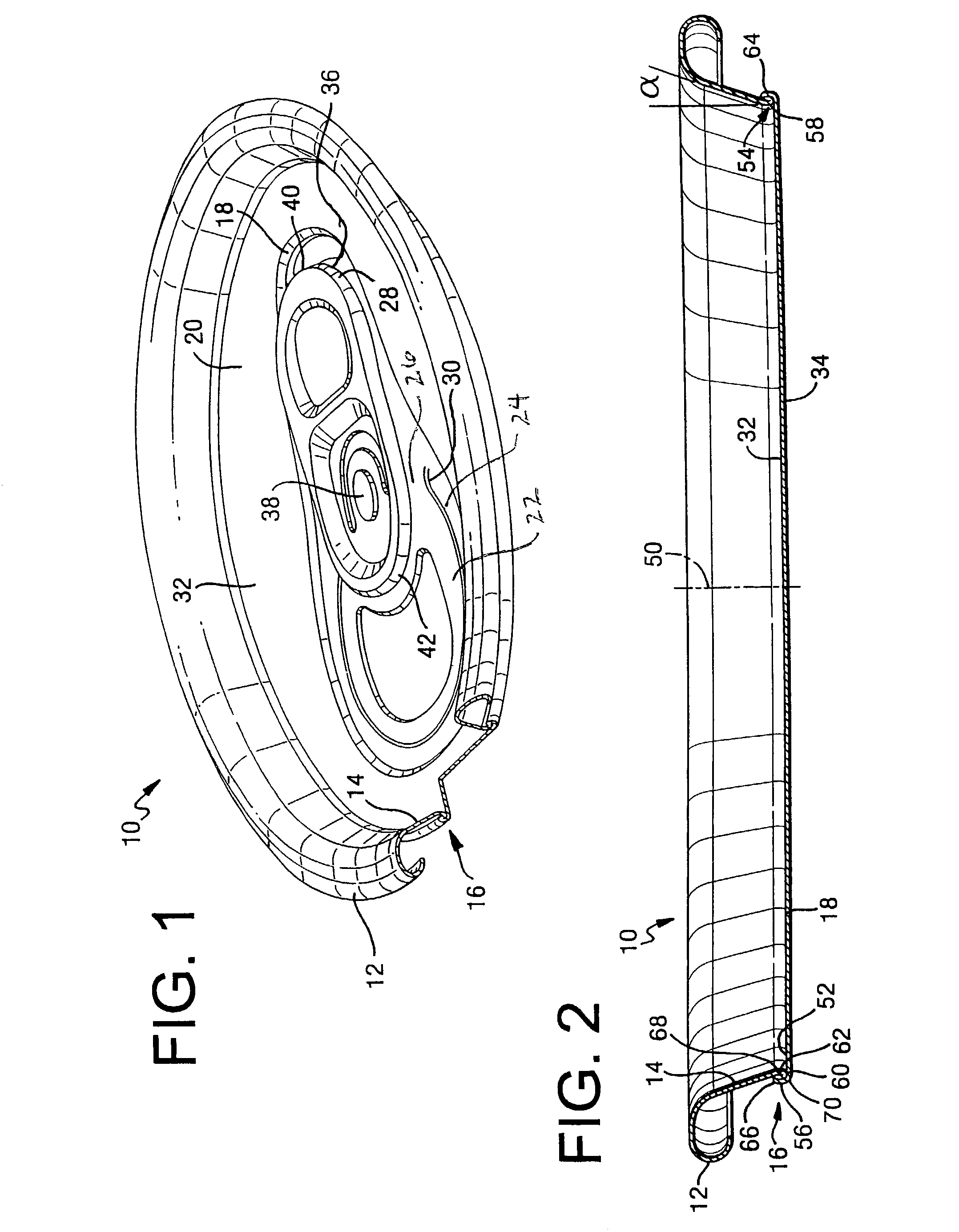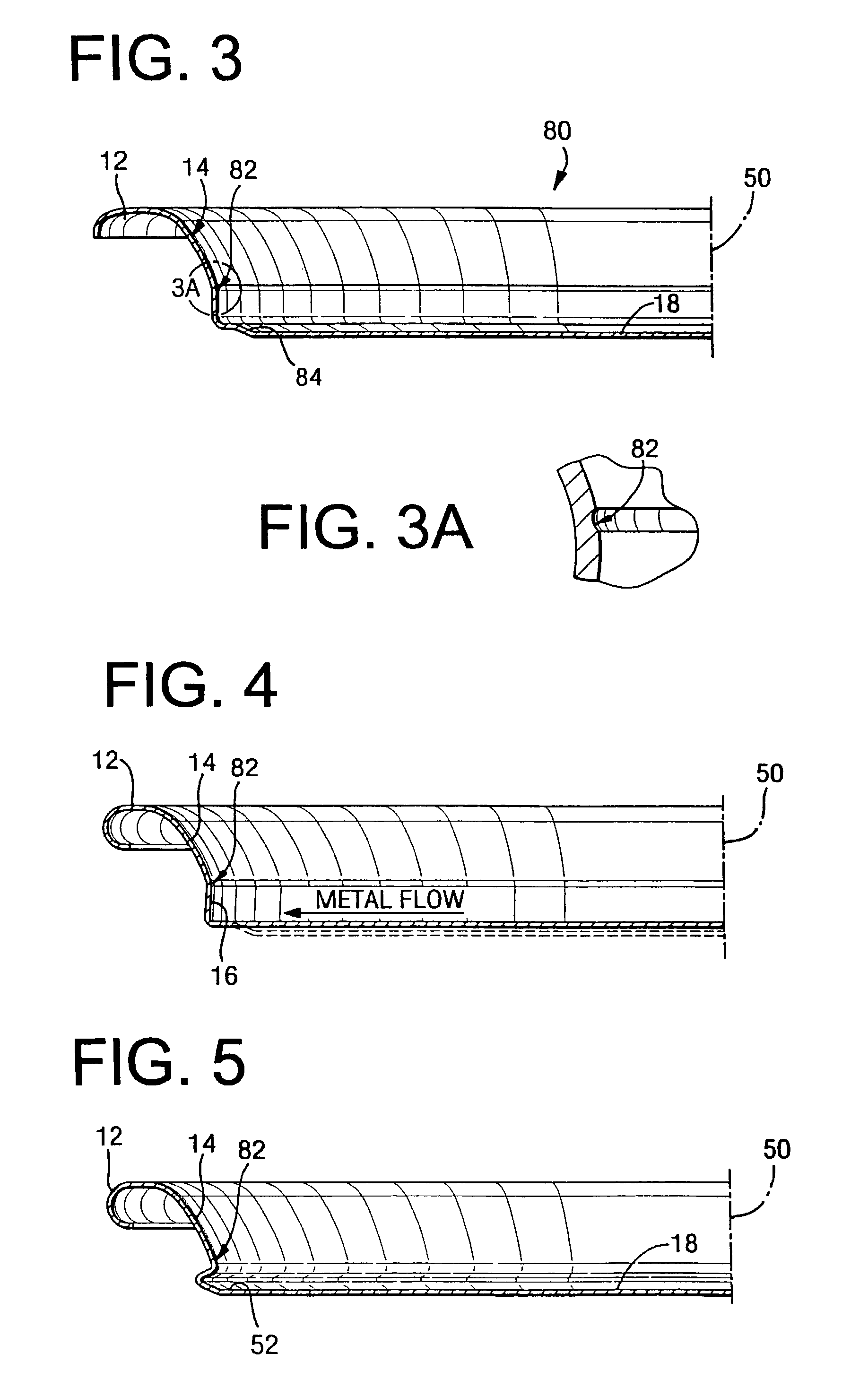Can end
a technology of end caps and canning holes, which is applied in the direction of caps, liquid handling, other domestic objects, etc., can solve the problems of restricting the size of the tear panel, not allowing the separation of any parts of the end caps, and accumulating dirt in the countersink
- Summary
- Abstract
- Description
- Claims
- Application Information
AI Technical Summary
Benefits of technology
Problems solved by technology
Method used
Image
Examples
Embodiment Construction
[0041]While this invention is susceptible of embodiment in many different forms, there are shown in the drawings and will herein be described in detail preferred embodiments of the invention with the understanding that the present disclosure is to be considered as an exemplification of the principles of the invention and is not intended to limit the broad aspect of the invention to the embodiments illustrated.
[0042]The container end of the present invention is a stay-on-tab end member 10 with improved physical properties including strength. Essentially, the present invention provides a lightweight end member 10 which embodies the physical characteristics and properties required in the beverage container market, as explained below.
[0043]Referring to FIG. 1, the end member 10 for a container (not shown) has a seaming curl 12, a chuckwall 14, a transition wall 16, and central panel wall 18. The container is typically a drawn and ironed metal can such as the common beer and beverage con...
PUM
 Login to View More
Login to View More Abstract
Description
Claims
Application Information
 Login to View More
Login to View More - R&D
- Intellectual Property
- Life Sciences
- Materials
- Tech Scout
- Unparalleled Data Quality
- Higher Quality Content
- 60% Fewer Hallucinations
Browse by: Latest US Patents, China's latest patents, Technical Efficacy Thesaurus, Application Domain, Technology Topic, Popular Technical Reports.
© 2025 PatSnap. All rights reserved.Legal|Privacy policy|Modern Slavery Act Transparency Statement|Sitemap|About US| Contact US: help@patsnap.com



